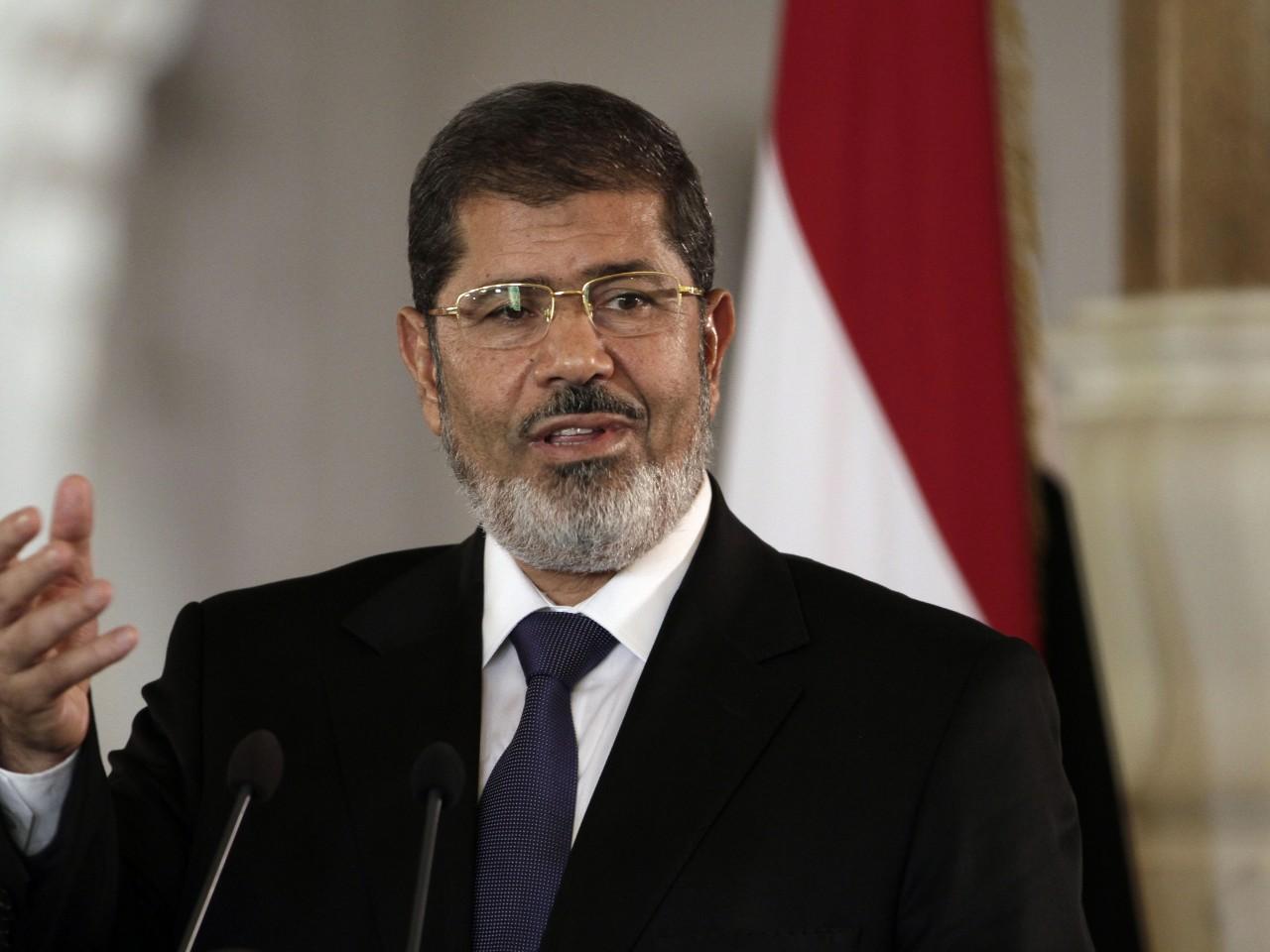Egypt’s threats over Nile waters backfire as promise of war is not credible – By Seifulaziz Milas


Egyptian President Mohamed Morsi has created an external threat to distract Egyptians from domestic problems.
Egypt’s threats towards Ethiopia and its Grand Renaissance dam project on the Blue Nile seem to be backfiring on all sides. On 3rd June, President Morsi, beset by growing internal problems, had a clever idea. His government would drum up an external threat, and call for internal unity. He invited leading Egyptian politicians to a meeting to discuss the issue of Ethiopia’s “diversion” of the Blue Nile – the source of most of Egypt’s water. Never mind that the supposed “diversion” was simply a temporary rerouting of the river by some 500 meters from its normal channel.
President Morsi called the meeting to review the impact of the dam (if any) on Egypt’s water supply. Strangely enough, he failed to inform the politicians that their meeting was being broadcast live on TV, which encouraged them to engage in a favourite pastime – the repetition old myths of their ownership of the Nile waters and willingness to fight for Egypt’s right to control them.
He may have also failed to inform his politicians that three days earlier an independent panel of experts (including members from Egypt, Ethiopia and Sudan) had reported the findings of a yearlong study, that the hydropower dam would not significantly reduce the flow of water reaching Sudan and Egypt.
With Egypt’s senior politicians discussing a potential military response, Ethiopia was not amused. President Morsi then appeared to put on a statesmanlike show of conciliation and calm. Later, however, Egypt issued a demand that Ethiopia stop construction of the dam, and warned on Monday June 10th that “all options are open.”
Ethiopian Prime Minister Hailemariam Desalegn responded, vowing that “nothing and no one will stop the dam’s construction” and downplayed the threat of conflict. Ethiopia’s Parliament also voted unanimously to ratify the new Nile Cooperative Framework Agreement (CFA), already signed by six Nile basin states. Congo and South Sudan have also announced plans to join the new pact – the result of decade-long negotiations, which will create a commission to oversee Nile projects and ensure the equitable allocation of Nile waters among the basin states.
Ethiopia had earlier postponed ratification for a year to accommodate Egypt’s request for time until an elected government was in place, and to allow the team of experts, including those from Egypt and Sudan, to inspect the dam and satisfy themselves that it would not reduce their water supply.
Meanwhile, efforts to mobilize the Egyptian public behind Morsi have had mixed results, kicking off an uproar in the country’s independent media. Critics have argued that carrying the meeting live on TV showed Morsi’s mismanagement of a national security issue. Reform campaigner and opposition leader, Nobel Peace Laureate Mohamed El Baradei, called on Morsi to apologize to Ethiopia and Sudan on behalf of the Egyptian people for what was said during the meeting.
Egyptian Foreign Minister Mohamed Kamel Amr also got in on the act, saying he would go to Addis Ababa to discuss the dam and, according to Reuters, vowing not to give up “a single drop of water from the Nile.” Ethiopia, however, had already refused Egypt’s request to stop work on the dam as a “non-starter, and dismissed threats from Cairo of “˜sabotage’ and “˜destabilization’ noting that such attempts by Egypt under its previous military rulers had failed.
The countries that share the Nile have long disagreed over the use of its waters. This has led to fears, largely promoted by Egypt, that the disputes could boil over into war. Since the late 1970s, when Egypt signed a peace treaty with Israel, it was permitted to place senior Egyptian officials in strategic positions in the World Bank and other international agencies. These included those concerned with international water issues such as the UN Environment Programme, and of course, international peace issues.
This enabled Cairo to implement a strategy of discouraging international loans to upstream Nile basin countries for development of water infrastructure without Egyptian permission. The justification was always that such loans would endanger peace as Egypt might be forced to take action in view of its “total dependency” on the Nile waters. If Egypt said it needed all the Nile waters, it was not for the international financial institutions to question. This of course encouraged Egypt’s verbal bellicosity, as did the international financial community’s habit of accepting, or pretending to accept, this verbal bellicosity at face value.
In the meantime, Getachew Reda, a spokesman for Ethiopian Prime Minister Hailemariam Desalegn, was quoted by Associated Press in Addis Ababa, pointing out that “If there are still people who still think they can do the kind of things which leaders in the past such as Mubarak were not able to successfully launch, then they are entitled to day-dreaming.” In 2010 when the late Ethiopian Prime Minister, Meles Zenawi, accused Egypt of aiding rebels against his government, Cairo denied the accusations, which Getachew described as “hard facts.”
That Egypt would engage in open warfare is most unlikely. Egypt’s long time ally Sudan has expressed its support for Ethiopia’s Renaissance Dam which, besides not reducing the amount of water for the downstream countries, would actually benefit them. In effect, the dam’s location in the depths of the Blue Nile Gorge, some 50 km from the Sudanese border, cannot be used for irrigation within Ethiopia, with no irrigable land within reach. The Renaissance Dam therefore poses no threat to Egypt’s water supply. The threat it poses, is to Egypt’s supposed hegemony over the Nile waters
Egypt’s foreign policy has long been shaped by its quest for hegemony over the Nile and the Blue Nile in particular. It is based on the premise that Egypt must be strong enough to either dominate Ethiopia or to create conditions that prevent Ethiopia from building dams on the Blue Nile. With that aim, Egypt occupied the port of Massawa for some 20 years during 1865 and 1885, having leased it from the Ottoman Sultanate. In 1875 and 1876 Egypt’s ruler launched a series of military expeditions against Ethiopia, led by Swiss and American mercenary officers resulting in humiliating defeats for Egypt at the battle of Gundet. Some four months later, during March 1876, some 12,000 Egyptian soldiers were annihilated by Ras Alula’s Ethiopian forces at the Battle of Gura.
Egypt may need to be reminded that regimes may change, with military, economic and other capacities too, but geography remains the same. Egypt will always be the downstream country. It may also need to be reminded of the limitations of its economic and military capacity and particularly its ability to project that military capacity over long distances and provide it with the necessary economic and logistical support. So far, its capacity appears to be greater using the tactic of destabilization with non-state actors
In recognition of its somewhat vulnerable strategic position, Egypt has used its political, economic and military strength to influence developments within other riparian states. This has included attempts to exert pressure on upper riparian states proposing to develop their Nile water resources, through threats of military action, and providing support to rebel groups.
While a war over the Nile waters was always unlikely, the recent political and economic turmoil in Egypt and the Arab region has made it still less feasible. There is a need for new faces to come forward, for a new dialogue, and to seek the win-win solutions needed by all the Nile basin peoples.
What is certain is that to support their rapidly growing and youthful populations, all of the basin states need to focus on urbanization, industrialization and job creation. This will require rapid development of their sustainable energy resources and acceptance of the reality that water is an economic resource that they cannot afford to waste. The Renaissance Dam and the 6000 megawatts of power that it will produce will make an important contribution to all the Nile basin states, and ultimately, to regional economic integration, peace and security.
Seifulaziz Milas is author of Sharing the Nile: Egypt, Ethiopia and the Geo-Politics of Water forthcoming from Pluto Books, London, July 2013.







I totally agree what has been said, especially “Reform campaigner and opposition leader, Nobel Peace Laureate Mohamed El Baradei, called on Morsi to apologize to Ethiopia and Sudan on behalf of the Egyptian people for what was said during the meeting.” and “There is a need for new faces to come forward, for a new dialogue, and to seek the win-win solutions needed by all the Nile basin peoples.”